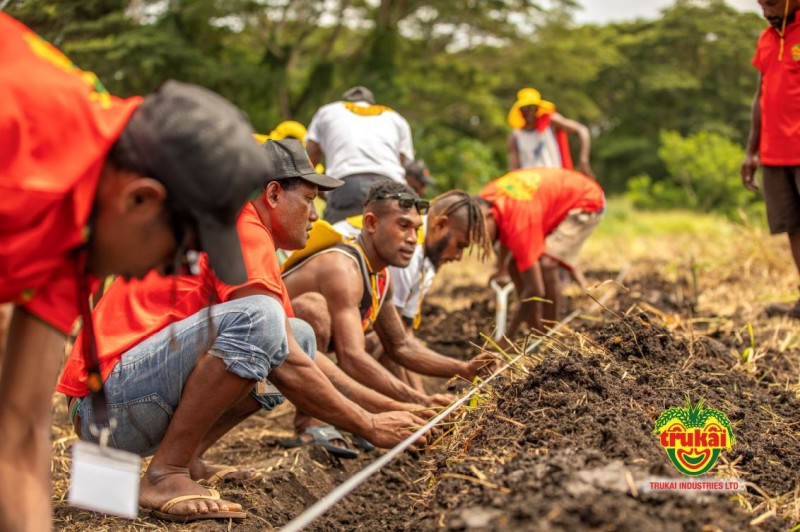Trukai’s Smart Farmer training begins for 2024

More than 200 rice farmers from across the country have commenced their rice farming training in both Lae and Port Moresby under Trukai Industries’ Smart Farmer program.
The program is a two-week certificate course that is conducted and funded by Trukai in partnership with the University of Technology (UniTech) in Lae and Pacific Adventist University (PAU), Port Moresby.
This training marks Trukai’s third Smart Farmer batch since its inception in 2022.
Participants will undergo both practical and theoretical aspects of the Smart Farmer training to help farmers, families, and communities start their own rice farming business.
Rice Development Manager for Trukai Industries Aina Davis said that the farmers will be taught using four modules.
“The first week of training covers three modules, which are, Introduction to Rice, Rice Environment and Irrigation Farming. By the last week of the program, participants should complete modules three and four on Rice Cultivation Cycle and Rice Farming Business and Management,” said Davis.
Davis welcomed PAU’s inaugural Smart Farmer program and added that more Papua New Guinean rice farmers could now take part in the Smart Farmer program.
“It is exciting to see so many rice farmers turn up at PAU to attend the university’s very first Smart Farmer training,” said Davis.
Trukai Industries’ Smart Farmer Program was initiated in partnership with the University of Technology, which successfully facilitated training for two batches of rice farmers last year, educating rice farmers from more than 14 provinces around the country.
CEO of Trukai Industries Alan Preston said this program is for farmers of all levels from elementary to commercial-based farmers and demonstrates the company’s support for local rice farmers in PNG.
“Over the years, Trukai has invested millions of kina to develop the agriculture industry through our research, our partnership with agriculture institutions, technical staff, training, and infrastructure. This program is our contribution towards rice development in PNG and we are looking forward to the positive outcome this will have on the livelihoods of the participants and their surrounding communities,” said Preston.








